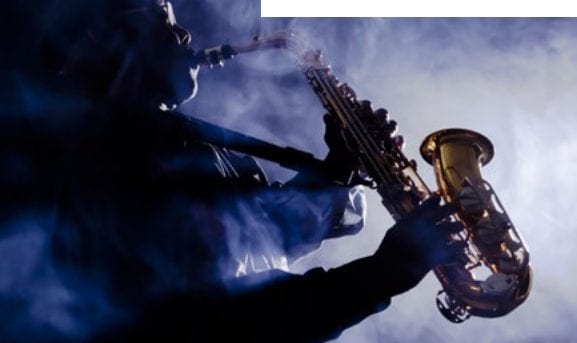
Jazz- Soaked Cannabis Slang from the 20s and 30s
“Everything will seem so funny. Darkest days will seem so sunny.
That feeling will arrive when you smoke that killin’ jive.” — Cats and the Fiddles’ Killin’ Jive
Viper, tea, reefer, gage, nickel, weeds, roach, muggles. These terms from the 1920s and 30s confirm that cannabis users have a long history of inventive names for their favorite pastime. Makes sense if you need to be cautious about what you say and to whom. Special lingo is a code that defines a culture, who’s in, and who’s not.
Doobie, 420, ganja, chronic, buddha. Music has broadcast the language of cannabis down the decades. Think of Woodstock, Bob Marley, Willie Nelson, Rap and Hip Hop. The language changes as the culture morphs through time. Few terms from the 20s and 30s are commonly used now. Some still signify the kind bud – reefer, weed, nickel (from the old $5 baggie days) and roach. But viper, tea, gage, jive and muggles – not so much. Yet, all these words come from a magnificent musical culture of resistance to oppression in America well worth learning more about. And a swingin’ course of study it is, too.
Jazz, that stunning all-American music created in African-American communities during the dangerous Jim Crow years, is rightly credited as a cultural bridge across the nation’s huge racial divide. Crafted in Black communities from New Orleans to Harlem and filled with the subtle language of defiance, jazz celebrated the vibrant intelligence and creativity in communities kept in economic, social and political chains. Slavery was illegal but bigotry and systemic oppression were all too normal. As white folks began mingling with black folks for the love of the music, some of the rigidity of racism was eroded too. And, over time, the lingo of jazz brought white listeners into cannabis culture as well.
 Jazz historian, Dan Morgenstern, has written about the importance of cannabis in the jazz world. He’s quoted in a Leafly.com post by Bruce Kennedy, “It was well-liked because it did something to steady their time feel; it was very useful for playing jazz.” As for the music being a cultural bridge, Morgenstern points out that alcohol prohibition from 1919 to 1933 encouraged whites to look elsewhere for a good time. As jazz morphed into swing music, more whites crossed the line into cannabis culture.
Jazz historian, Dan Morgenstern, has written about the importance of cannabis in the jazz world. He’s quoted in a Leafly.com post by Bruce Kennedy, “It was well-liked because it did something to steady their time feel; it was very useful for playing jazz.” As for the music being a cultural bridge, Morgenstern points out that alcohol prohibition from 1919 to 1933 encouraged whites to look elsewhere for a good time. As jazz morphed into swing music, more whites crossed the line into cannabis culture.
Cannabis terms usually have an obscure history. Old jazz songs mention quite a few and allow us to glimpse that world of euphoric defiance. One of the CD compilations of classic cannabis songs from the early 20th century is “When Hemp Was Hip: 14 Songs of the High Life,” a 1995 disk from Viper’s Nest Records. Many of the greats of jazz are included and the songs are a goldmine of coded talk. Cab Calloway’s “Reefer Man” opens the set. According to the Collins English Dictionary, reefer comes from the days of sailing ships and first referred to sailors who reefed (rolled for storage) the sails. A rolled joint looks like a reefed sail. The word reefer traveled from sails to ships to railroad cars. Can’t you almost see the sailors, longshoremen and hobos passing joints from San Francisco to Boston?
One of the oldest songs in the collection, from 1928, is “Muggles,” recorded by Louis (Satchmo) Armstrong, the great trumpeter, singer and lifelong cannabis advocate. We’re not in the world of Harry Potter here. In the 1926 “Wisecrack Dictionary” by George Maines and Bruce Grant, muggle refers to a joint and muggles means cannabis. Books and websites abound tell Satchmo’s history with cannabis. Marijuana.com posted an especially precious resource. Their 2014 article “Louis Armstrong: America’s First Marijuana Advocate” reprints a transcript of Armstrong’s memories of his bust for possession in 1930. He says, “Several movie stars… told me, when they heard about me getting caught with marijuana they thought marijuana was a chick. Woo, boy, that really fractured me!”
Other songs in this collection refer to gage, tea and viper. Gage was Satchmo’s pet name for cannabis and, according to that Leafly post, viper seems to have referred to the hissing sound of taking a hit off a joint. “Light a tea and let it be, if you a viper.” To Satchmo, being a viper meant those who “smoked and respected tight gage.” Tea, another flaky leaf, used to be bagged in little bundles rather than flat bags. See a photo in a 2015 Time.com article by Sarah Begley.
The recent Netflix show “Disjointed” may have disappointed many in the industry, but it’s opening song, “Jack, I’m Mellow,” a 1938 hit by Sidney Bechet sung by Trixie Smith, is a fine intro into the world of swingin’ cannabis slang. If it leads more people to research this history, then the show has done some public good. Just smoke some gage, listen to some history, and mellow out, vipers.


Leave a Reply